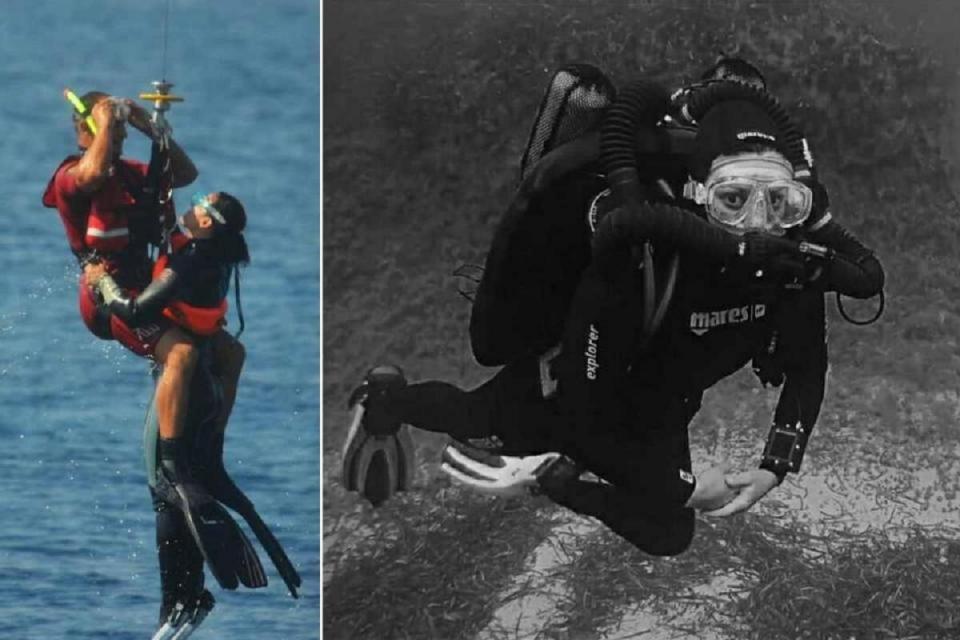"In conclusion the diver had problems in controlling her buoyancy due to the malfunctioning dry suit inflator and lack of enough lead weights. This may also had been a contributing factor in what eventually
happened. We cannot be certain if the regulators’ Venturi switch being set at maximum had any impact since during our tests the regulators did not free-flow but they might have done so underwater. The twin set being completely empty is another question. An experienced fit diver can handle any of the afore-mentioned problems and would know better than to breath the main cylinders completely empty before switching to the 7 lt with the Nitrox mix.
If she had ran completely out of air at the end of the dive at 10mts depth, she had a number of relatively safe options to resort to in order to make it safely to the surface:-
- Switch over immediately to her deco cylinder and start the ascent;
- Make the out of air signal to her buddy and buddy breath to the surface.
Till this stage of the dive her buddy had been near her all the time. His dive profile matches hers exactly except at the end (DOC3).
- Grab her buddy’s deco cylinder’s regulator and breath from it.
- (As a last resort) make a free controlled ascent to the surface.
The deceased took none of these actions but made an uncontrolled ascent to the surface.
It is possible that in this case, the diver was faced with the perfect storm of a number of physical and technical problems. These might have proved too much for her to handle at that time when one considers that:
- She had been at work on twenty-four hours duty prior to the dive – she must have been tired.
- She had problems in controlling her buoyancy throughout the whole dive:- resulting in fatigue and exhaustion.
- She made a fast ascent from 7 mts to the surface on the 17th minute – possibly due to dry suit over inflation or maybe some physical problem.
- She was consuming a lot of air during what should have been a fairly easy and relaxed dive: breathlessness possibly caused by arrhythmia (which could have been the reason why she suddenly shot up to the surface, lose consciousness and drown).”

 www.divinginfo.mt
www.divinginfo.mt



